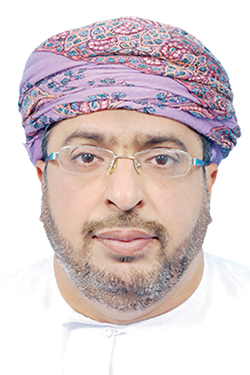

Despite the damage inflicted on the agricultural and livestock sector in Syria over the past eight years from the war and the displacement of land workers and farmers, things are looking up again as Syria is now abundant with vegetables, fruits and other agricultural products,” said Eng Ahmed al Qadri, the Syrian Minister of Agriculture and Agrarian Reform, at a meeting with an Omani trade delegation that had visited Syria recently. Over the past years, many Syrian agricultural and livestock institutions were affected by the war, including grain depots, agricultural banks, fertilizer plants and other associated sections of the sector.
No one can forget the days when Syrian produce reached Oman and other GCC states on a daily basis. This came to a complete stop due to the war, badly affecting a group of tradesmen and farmers in Syria, Lebanon and the countries of the region and sometimes leading to a hike in the prices of these products in local markets.
Several decades ago, Syria used to import agricultural products, but today it has become a self-sufficient country in this field, thanks to the scientific research approach it adopted during the period from 2000 to 2011, leading to an uptick in agricultural and livestock projects. The recent war on Syria targeted various projects, including infrastructure projects established for the agricultural sector dating back 40 years ago.
This in itself posed a major challenge for many citizens, but the government has given priority to agriculture and industry once again, focusing on restoration of affected facilities, giving priority to livestock, promoting poultry products, and so on.
Syrians hope to enhance trade between Oman and Syria in the agricultural field in the upcoming period. Meanwhile, Syria has begun to export many of its agricultural products to Russia, China and other countries.
It also benefits from the experiences of other countries whilst offering its own expertise in olive cultivation (Syria ranks the fourth worldwide in the cultivation and production of this important crop), in addition to supporting farmers by Syrian government who purchases all farmers’ products at prices higher than the global price.
Moreover, the Syrian government established a fishery authority to increase fish production through land-based fish farming, in cooperation with FAO after conducting the necessary studies. However, Syria continues to import fish, including Omani fish, but aim to reduce its imports by establishing more fish-producing projects. The Syrian government hopes to establish further cooperation with the Sultanate based on the existing mutual relations and considering that the Omani maritime experience is vast and rich, which can be enhanced in the future, in addition to utilising Omani dates due to the shortage of this product.
The Syrian government also welcomes cooperation in the field of establishing olive oil factories in the Sultanate and with the participation of Syria, whilst working on tackling challenges in the process of currency conversion or through barter, as is the case with some countries.
The interest shown by the Syrian government towards farmers and farm-owners has encouraged them to return to their lands and re-cultivate them, through rural development programmes, provision of electricity and water, and supporting agricultural inputs and outputs, doubling income from agricultural work.
This has contributed significantly to counter-migration efforts. Moreover, rural women are carrying out many agricultural jobs whilst running households and farms due to the absence of men who are fighting in the war.
National manpower is involved in the working of these farms, as the government encourages family cultivation of land attached to homes for 20 metres and beyond, to enable those families to master the process of agricultural production and benefit from, and sell surplus produce to other parties.
The same idea has been applied to fisheries. Owners of fishponds can increase their yield and sell any surplus. This idea proved successful with women particularly women whose spouses lost their lives in Syria’s absurd war.
haiderdawood@hotmail.com
Oman Observer is now on the WhatsApp channel. Click here



